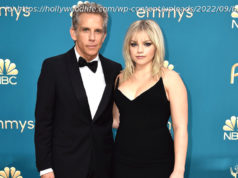TheWrap critic Russ Fischer ranks «Star Trek Beyond» among all of the Enterprise crew’s big-screen adventures
YouTube
13. «Star Trek Into Darkness» (2013)
«Star Trek» borrowing from itself is fine (see a good use of ideas from «The Voyage Home» in «Beyond»), but the second J. Abrams film plunders «The Wrath of Khan» like Doctor Frankenstein’s assistant seeking raw monster material. The appropriation and reversal of the emotional crescendo of «Khan» lands with a thud, as does the illogical, witless script and its muddy 9/11 allegory.
YouTube
12. «Star Trek Nemesis» (2002)
There are good elements in the final «Next Generation» outing: Tom Hardy ‘s preening, arrogant interactions with Patrick Stewart; Ron Perlman ‘s «Nosferatu»-inspired makeup, which looks like a Guillermo del Toro dream; one of Jerry Goldsmith’s final scores. But Stuart Baird’s atonal direction makes for a dull action slog stained with the psychic rape of Deanna Troi — a scene which becomes merely setup for a battle maneuver. «Star Trek» was forced into a seven-year theatrical hiatus after this movie. Frankly, the break was needed.
YouTube
11. «Star Trek: The Final Frontier» (1989) William Shatner ‘s directorial outing is all about Kirk as an ’80s action hero, but the film oddly undermines the captain as often as it beefs him up. That interesting tension is lost in a plot about Spock’s long-lost half brother, written as a forgettable combination of Jesus and Charlie Manson, seeking God at the far end of the universe. The goofball script, with ideas like Uhura distracting enemies by dancing atop a sand dune, goes full-on silly at the patchy, forgettable climax.
YouTube
10. «Star Trek Insurrection» (1998)
«Insurrection» strives to be lighter than other «Next Generation» movies, with more jokes and a distracting love affair for Picard, but its «fountain of youth» plot leads to indignities such as Worf suffering a giant zit. A decent story kernel — the Federation is beginning to appear weak and out of date — hides within this film, but few scenes support or expand that idea. Instead, «Insurrection» works with a limited visual and story palette better suited for a TV episode.
YouTube
9. «Star Trek Generations» (1994)
Cinematographer John A. Alonzo («Chinatown») ensures this first «Next Generation» movie often looks tremendous, and the opening with Kirk, Scotty and Chekov is a pleasant callback to the original crew. Yet the script’s big-screen ambitions are squandered on a mediocre Enterprise-breaking set piece. The film’s sagging midsection shows how poorly theatrical films explored Data’s yearning for humanity as a replacement for Spock grappling with the meeting of Vulcan and human instincts. Some good interaction between Kirk and Picard notwithstanding, their meeting is saved for the last reels, and Kirk’s final send-off is so lame that casual viewers probably won’t even remember his fate.
YouTube
8. «Star Trek First Contact» (1996)
The best of the Next Gen movies fuses Borg invasion and time travel plots, throwing the Enterprise-E into Earth’s past on the trail of the cybernetic collective as it attempts to prevent humanity’s first contact with Vulcans, thereby destroying the Federation at its root. «First Contact» has more action than most Picard stories, but it’s still padded with a lot of corridor-crawling filler. For all their visual menace, the Borg aren’t particularly frightening, and even Alige Krige’s Borg Queen never gels as a villain. Points go to Alfre Woodard, however, for dressing down Picard.
YouTube
7. «Star Trek III: The Search for Spock» (1984)
After the grandeur of «The Wrath of Khan,» director Leonard Nimoy ‘s first Trek feature feels cheap, even though it is the first «Star Trek» film to destroy the Enterprise. The Genesis planet created in «Wrath of Khan» is a great setting, but «The Search for Spock» is saddled with stilted staging and mediocre villains. This chapter succeeds by bringing Spock back to life in a way that prevents a simple reunion with his former crew members, but it serves best as a bridge between the second and fourth film.
Paramount
6. «Star Trek Beyond» (2016) The streamlined, effective third outing for the reboot crew is free of baggage — no need to justify its own existence or kooky fan-service tricks. Having firmly defined their roles, the cast has room to play and riff off one another, aided by a script that traps the crew, broken into pairs, on an alien planet. As Kirk says early on, things feel a bit episodic, but that’s «Trek,» and in this case the vibe of «Beyond» is calibrated to evoke the spirit of the original TV series. That task is accomplished well, and while Idris Elba ‘s villain first seems growlingly rote, he grows into a respectable counter-balance for Kirk.
YouTube
5. «Star Trek: The Motion Picture» (1979)
The series’ first film is slow even by 1979 standards, though a 2001 director’s cut has better pacing and character work. Even with the glacial movement, the crawl through V’Ger’s environment and loving pans across the Enterprise — a gift to fans who waited a decade for new live-action adventures — are glorious. The story offers a welcome window on the running of the Enterprise and develops the sort of hardcore sci-fi story even «Star Trek» doesn’t often get to do.
YouTube
4. «Star Trek VI: The Undiscovered Country» (1991) Gene Roddenberry often pushed his series to explore stories as allegories for modern life and politics; here «Trek» becomes a Cold War story in which the Federation and a nearly bankrupt Klingon Empire are dropped into the context of a political thriller. Christopher Plummer adds weight as a key villain in a dark and heavy story that folds in murder mystery elements. It’s not always successful, especially in obscuring the culprit, but this look at the Federation is unlike anything else in the «Star Trek» film series.
Paramount
3. «Star Trek» (2009)
The script for J. Abrams ‘ franchise reboot takes big swings and doesn’t always connect, especially in the villain department. Yet the cast is so well-chosen, with chemistry and charisma to spare, that the new ensemble explores the dynamics of Roddenberry’s old crew with apparent ease. Rather than replicating the interaction between Shatner and Nimoy, Chris Pine and Zachary Quinto find their own rhythm and quickly make a case for their versions of the well-known pair.






